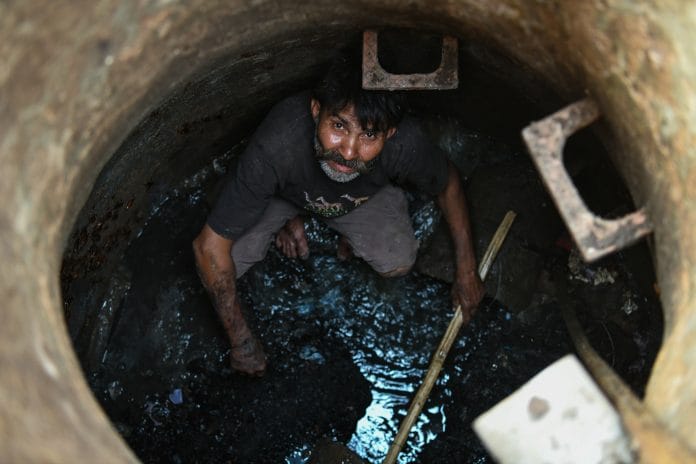Thank you dear subscribers, we are overwhelmed with your response.
Your Turn is a unique section from ThePrint featuring points of view from its subscribers. If you are a subscriber, have a point of view, please send it to us. If not, do subscribe here: https://theprint.in/subscribe/
Rana Dagore was a tall, dark and handsome teenager in a government school of the Basti he was born in. The Basti was overcrowded, dirty noisy and without any place to study or play. School library was second home to him and his bag.
He was a good student but when a new Mall opened near his Basti he wanted to go there. One day he walked in that mall. It was cool, big and clean. He liked it. He walked, trotted and even ran when there were no guards around. He learnt going up and down the escalators. The Mall became his playground.
Rana’s mother had a permanent government job in a big hospital. She was a cleaner. Her duties included sweeping, mopping, dusting, spraying disinfectant, emptying trash and disposing of medical waste by following protocols for handling biohazardous waste and spillages.
She knew she was part of the essential services group as hospital cleaning directly impacted the health and safety of patients and staff. However it was a tiring job.
She was looking forward to her retirement. Before that she wanted her son to get a job. She requested her boss to help her only child get some job.
Rana unaware of that was waiting for his class twelve results. He was a good student and wished to study in a good college of the University.
When Rana Dagore’s mother told him that her boss had procured a job for him he just nodded. He did not protest because he knew their economic condition and he had always listened to his mother whom he loved and respected deeply.
Rana got the job of a sewage worker in AIIMS. He had no idea what the job entailed. His first assignment was to clear a blocked drain in a doctor’s flat in Asian Games Village.
He was only given a ‘tar gola’—a 3feet long, ½ in diameter metallic pipe with a mini handle on one side and a thick round leather piece on the other.
He was shown a toilet with over 6’’ of filth laced water on the floor. He thought for a few minutes, removed his shoes, walked to the drain, and started pushing and pulling the’ tar gola’ in the drain. After 10 minutes or so felt victorious when water started clearing.
His next assignment was in Masjid Moth where junior engineers of AIIMS lived. The sewage line of two blocks of houses was blocked. In the name of equipment, he was given some rags, one split bamboo pole and one equally long metallic pipe with a jute rope passing through it .
He got into the gutter, probed around located the blocked pipeline and slowly pushed the bamboo pole in it. Holding the rope, he then inserted the pipe there. He kept pushing, pulling, pushing the pipe till the clogged stool became loose and went down the sewer main.
Eighteen years old Rana had never thought that he would have to do such menial job for his family. Every evening in spite of scrubbing his body with Dettol soap the smell of excreta did not leave his body, he felt.
Rana started dreaming about blocked sewers. His mind was constantly thinking of ways of opening blocked drains. Nine months went by. Then came a change in his life.
His diligence, acute concentration, and ability to complete the work at hand every time had impressed a non-profit organization. He was offered a job of an office assistant.
Rana Dagore’s new life began the day he went to that organization in a fresh set of clothes. His father who had retired from his job long back accompanied him to discuss Rana’s pay scale, duties and work hours.
In that organization Rana Dagore started changing. The organization enrolled him in courses like computers, English, environment, law and behaviour. Rana metamorphosed to a strong communicator, problem solver, computer savvy, confident, visionary and an asset to the organization.
His wish to study had been Realized. After office or/ and field work he would attend evening classes. His hard work, old habits of undertaking the job at hand with diligence, acute concentration, and ability to complete the work at hand every time paid off. He went up the ladder of organization.
As a senior, he was a warm and compassionate role model to the newer members; a tough negotiator in ‘climate change’ forums; an innovative campaigner for a sustainable lifestyle and an eagle-eyed member spotting wrongs to any life form or environment around.
Rana Dagore had not forgotten his sewage worker days and often wondered why in Gandhi’s India carrying human excreta was illegal but working in it still legal?
These pieces are being published as they have been received – they have not been edited/fact-checked by ThePrint


